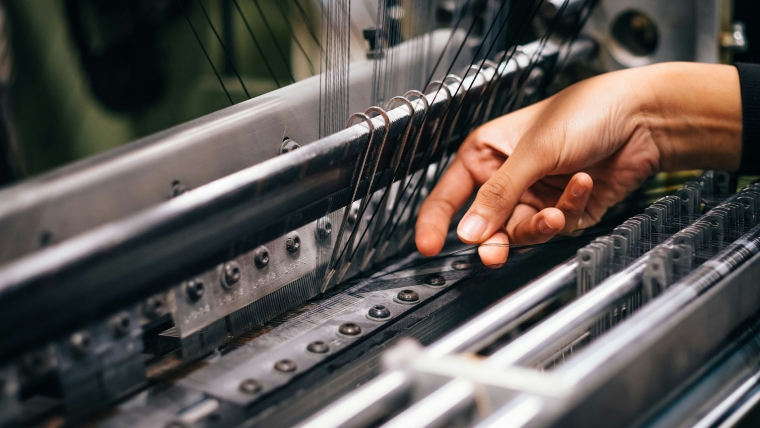
A group of institutional investors and New Zealand businesses are calling for legislation that addresses modern slavery in Aotearoa.
In a statement released on Tuesday, the group said: “Modern slavery legislation is a big gap in the country’s corporate regulatory landscape.”
“Urgent action is required to address this concern, protect our reputation, and better manage the risks modern slavery creates for both people and businesses.”
Modern slavery includes human trafficking, slavery, forced marriage, forced labour and debt bondage. It is described by the Ministry of Business, Innovation and Employment (MBIE) as “severe exploitation that a person cannot leave due to threats, violence or deception”.
Work has been done in the past to look into modern slavery legislation but MBIE's website said this is on hold "while the Government focuses on its current Workplace Relations and Safety priorities. Decisions on whether to progress modern slavery supply chain legislation will be made in due course".
Tipping point
At the moment, two private members’ bills on modern slavery have been placed into the Parliamentary ballot - one by National MP Greg Fleming and the other by Labour MP Camilla Belich.
Alongside this, in August, Justice Minister Paul Goldsmith announced the Government would be tightening trafficking and people smuggling laws.
The group calling for action is made up of 28 organisations including ANZ New Zealand Investments Ltd, Westpac, Pathfinder, Kernel Wealth, AMP Wealth Management New Zealand and Responsible Investment Association Australasia.
“We stand at a tipping point to introduce legislation aimed at driving transparent and ethical supply chains," they said.
“This is critical to protect vulnerable workers but also to maintain competitiveness and trust in our exports and brand.”
Out of alignment internationally
The group said a number of countries - including some of New Zealand’s key trade partners - have introduced laws that require businesses to identify, address and report on modern slavery or broader human rights risks.
“However, Aotearoa New Zealand has failed to keep pace.”
Referring to a 2022 World Vision report looking into supply chain risk, the group pointed out New Zealand had imported $7.9 billion worth of risky goods connected with child and forced labour.
World Vision's report found 10% of the country’s total imports were linked to child and forced labour, and each week, a New Zealand household spent about $77 on risky products potentially linked to forced labour.
The group called for New Zealand to align with global standards and expectations to maintain market access.
“As our trading partners tighten their due diligence and enforce import bans on goods made with forced labour, Aotearoa New Zealand risks damaging international business relations and emerging as a soft entry point for risky goods.”
Not only an ethical issue
The group said modern slavery was not only an ethical issue but a material business and investment risk.
“Clear legislation also enables investors to assess and manage risk more effectively, strengthening business credibility and access to capital.
“Appropriate legislation provides the clarity and consistency needed to support this work, creating a level playing field to ensure all businesses are required to meet these standards.”
Call for political collaboration
The group said it supported a legislative response to modern slavery.
“The Bills both require businesses to report annually on modern slavery risks, and will provide a consistent standard, reduce compliance uncertainty, and protect companies committed to ethical practices from being undercut.”
The group said it urged political collaboration “to ensure passage of new laws without undue delay, and look forward to supporting the progression and implementation of this regime”.
Responsible Investment Association Australasia’s co-chief executive Dean Hegarty said investors are watching closely.
“New Zealand can’t afford to fall behind. Modern slavery laws aren’t just about ethics, they’re about ensuring we remain a credible, attractive destination for global capital,” Hegarty said.
“Having laws which allow for better information and mitigation of modern slavery risks in New Zealand businesses will not only give investors confidence to bring their money here, but also prevent New Zealand from becoming a dumping ground for compromised goods made by poor labour practices.”
Two years into its three-year term, "the government needs to show urgent leadership on an issue that has already seen private bills introduced from both major parties”, Hegarty said.
The 28 signatories are: Mindful Money, Responsible Investment Association Australasia, 1st Maintenance Limited, 1st Mechanical Limited, Amova Asset Management, AMP Wealth Management New Zealand, ANZ New Zealand Investments Ltd, Aurora Capital Limited, Ausbil, Booster, BTNZ, Climate Venture Capital Fund, Devon Funds, Envirostrat, Future Group, Harbour, Impax Asset Management, Kernel Wealth, Mint Asset Management, Money Matters (NZ) Limited, OCS Limited, Pathfinder, Purpose Capital, Tahito Limited, Trust Management, Trust Waikato, U Ethical Investors and Westpac.
2 Comments
each week, a New Zealand household spent about $77 on risky products potentially linked to forced labour.
Gee, that's shocking. Must read the report in full as I would hope they have qualified what products/services (and/or retail/import companies) these include.
I've looked up a lot of the big box type retailers (e.g., below link), but I wonder if we can rely on these such declarations without a regulatory framework to conduct compliance.
https://www.thewarehouse.co.nz/suppliers-ethical-sourcing
Not shocking - it's what happens when the most powerful hegemony on the planet, and acolytes, force 'others' to become price-takers.
We offshored all out manufacturing to lower-wage places with slacker regulations - and it was 'we'; we could have paid more to keep it at home; we didn't. And not cannot. Which is why Trump cannot bring manufacturing home - home cannot afford home's wages.

We welcome your comments below. If you are not already registered, please register to comment
Remember we welcome robust, respectful and insightful debate. We don't welcome abusive or defamatory comments and will de-register those repeatedly making such comments. Our current comment policy is here.